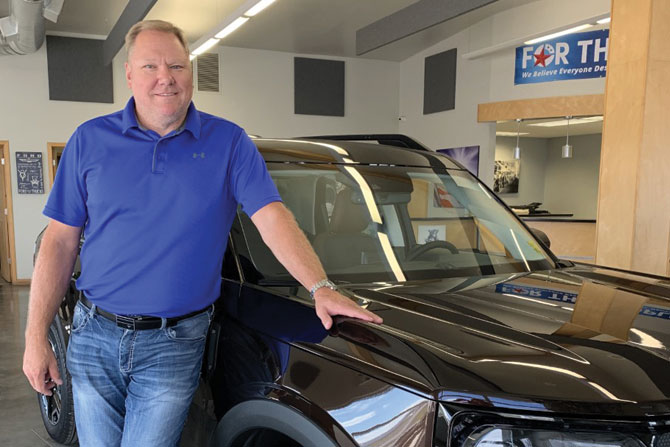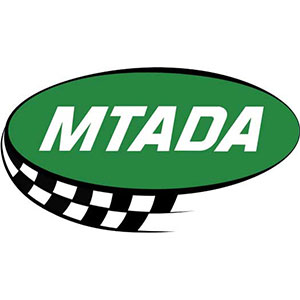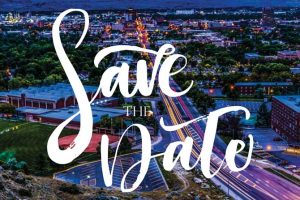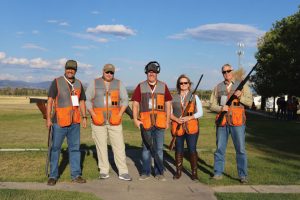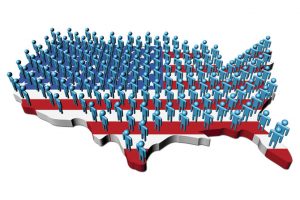Q: How did you become a car dealer? Did you always aspire to be part of the automotive industry?
A: I grew up in the automotive industry. My dad became a partner in a dealership in 1972, and later on, he owned his own dealership. I started washing cars when I was 10, and I worked my way up from there, but I didn’t necessarily aspire to be a dealer when I was that young. It was more like I had a clear pathway into the industry, and once I got started, continuing on that career path just happened naturally.
I spent two summers working the service drive when I was still in school, and then one day, my uncle, who was a junior partner at the time, came back to where I was and said he needed a salesperson. He asked me to go out front. That was in July 1996, and I went back to college a month and a half later. After that, I sold cars in the summer and naturally started making pretty good money. If you put in the work and get the training, the sky is the limit. You can make anywhere from $2,500 to $10,000 a month.
After I graduated from college, I needed a job. My father told me that I should work at the dealership until I found something else. I started selling cars, and that went well because I already knew what I was doing. I got into management three years later. Since then, I think I’ve created my own path and opportunities in the auto industry.
Q: In addition to your dad and your uncle, do you have other family members in the auto industry?
A: No. My dad and my uncle created an auto group and then sold it to Lithia. My dad tried to retire after that. He got fully out of the car business, but then he got bored, bought another dealership from my uncle and jumped back in. He officially decided to retire again about four years ago and sold the store. He is now 73. My uncle currently has his own dealership, Pierce Auto Center, in Sagle, Idaho.
Q: Describe your educational background. What did you study?
A: After graduating from C.M. Russell High School in Great Falls, I went to the University of Montana Western in Dillon, Montana. I played college football there. Also, I was involved as the student body VP. I studied business communications and graduated in December 1998.
Q: Are there any specific individuals who had a major impact on your career?
A: I was fortunate to learn from three really, really good people in the auto industry: my dad, my uncle and Bill Cantwell. All three men had different strengths for me to learn from, and it was like having three dads when I was growing up. Bill has been very much part of our family since before I was born.
Q: What is the most rewarding part of your career?
A: Helping the people around me. I enjoy doing things for my employees because I consider them to be family, and I also enjoy giving back to the community in many different ways. Many people don’t realize how much a dealership in the community contributes, but even though people may not see that help, for me, making contributions is certainly rewarding.
Q: What do you think will be some of the dominant trends within the auto industry in the next 5-10 years?
A: Without a doubt in my mind, the most dominant trend will be the evolution of the electric vehicle. Many people are putting a lot of research, time and energy into electric vehicles, and the federal government is pushing for them, too. As people see more and more EV products, dealers need to embrace EVs and get them into the retail marketplace.
The major automakers have been building vehicles since at least the 1930s. The brightest minds work for them, and their engineers have the most advanced technology and the best resources. They got off to a slower start on EVs than Tesla, but they are not far behind, and they bring products and a level of service to the table that Tesla does not have.
The products include the trucks or SUVs we all like. Manufacturers are starting to provide electric versions of the big vehicles, like the F-150 Lightning or the Hummer brand. People will be pleasantly surprised.
Service is important, too. Having an actual dealer network throughout the country is a huge advantage for manufacturers once their vehicles really start to hit the marketplace. Customers can get their EVs serviced at most dealerships across the country. I also expect the franchise dealership network for EVs to expand in the coming years, making it even more attractive for consumers to purchase an EV from a franchise dealership.
Most states, including states like Montana and Texas, have a business model that requires manufacturers to sell through a dealership instead of factory direct. Elon Musk does not want to use franchise dealerships and is fighting the franchise system. He is spending hundreds of millions of dollars to change the rules. But not having a dealer network in place hurts Tesla.
Another trend is autonomous cars, but I don’t feel comfortable saying fully autonomous cars will be here in the next 5-10 years, although they are tied to electric vehicles. Right now, you can drive autonomous cars the same way you are accustomed to. The rest of the technology isn’t here yet. I am interested to see how the technology will evolve. I can see using autonomous cars for long-haul trucking, but even then, somebody still has to be there to stop the vehicle, recharge the engine and unload goods. There just won’t be as much driving. Also, engineers are still figuring out how to get more range out of electric vehicles. If you switch to a semi, the power to make the load go will be pretty intense.
Q: Why is it important to be an MTADA member? What makes it beneficial?
A: A lot of dealerships in Montana pay dues but don’t know what the MTADA does for them. They just know it is important for a new car dealer to be a member. But a state association for auto dealers has many moving parts, and membership is actually a critical component. It’s pretty incredible what dealers get for the $250 membership fee. When they find out, that’s when they often say, “Wow, you guys are doing a lot to protect the auto industry.”
Obvious benefits are the health insurance program, dealer’s suppliers and business with vendors. But there is a big part that most dealers don’t see because it is behind-the-scenes work. We carry our voice into the political arena, and we have been able to get laws passed to protect dealers. A large amount of work has gone into that.
Manufacturers arbitrarily closed dealerships during the Great Recession. After that, we reviewed the franchise laws and spent the next 10 years forming relationships with lobbyists and working on those laws to protect dealerships from something like that happening again.
The state Legislature only meets every two years, but we found people to carry our bills to the legislators. Even though manufacturers have spent millions with their lobbyists, we have won multiple battles and have gotten our bills passed. Now we have some of the toughest laws in the country to protect our business. We are treated fairly on all levels, and we have made it difficult for manufacturers to tell us how to run our business. That is the biggest benefit the association has given its members.
Things can change fast in the car business because it is always month to month, and you never know what the next month will be like.
Q: In looking back at this year, what stands out for you? Are there any accomplishments you are especially proud of?
A: The thing that stands out for most dealers is the pandemic. Nobody has ever been faced with anything like this before. But our employees excelled, we all got creative, and we have come out the other side feeling pretty good.
We had a local Chevrolet dealership, Duane Sparks Chevrolet, which was on the verge of being eliminated by General Motors. Duane had been struggling, and General Motors gave him a year to sell the franchise, but he had been closed for a year and hadn’t been able to find a buyer. We wanted to keep the franchise in the community. It’s still a viable brand, and it wasn’t just Duane who would have been out of a job. I was able to help Duane out and work with General Motors, and I kept the franchise. Duane, who is 73, was able to retire.
Q: What does the TIME Dealer of the Year nomination mean for you?
A: The nomination means a lot to me, and it is really special. Being recognized by peers at that level is awesome. It tells you the magnitude of the relationships that have been built. At the same time, I still feel a bit surprised. I’ve put in a lot of effort over the years, but I have a small dealership, and I live in the center of Montana. I am grateful for the recognition.
Q: Are you involved in any civic or charitable organizations?
A: We like to support anything that has to do with the youth in our community, and we look for organizations that have a positive impact on children’s lives. There are so many things you can give to when you are a dealership. For example, we support the Boys and Girls Club of America. We also contributed to the new swimming pool and the local skate park. We also serve on boards and work to make a difference there too. There are so many ways a dealer can support the community.
About eight years ago, I worked with about 10 people to raise money and bring the Professional Rodeo Cowboys Association (PRCA) Rodeo to the Central Montana Fair. The rodeo coincides with the fair and promotes the western way of life. It brings top-level talent here. Bringing the rodeo here was very rewarding and has been great for the community.
Q: What three things have you learned that you would pass on to someone you are mentoring?
A: 1. Have a positive attitude and don’t give up during challenging times. We have a four-word term that we turned into an acronym: enthusiasm makes the difference (EMTD).
2. Embrace change, and don’t be afraid of it. Just because we did something one way 10 years ago doesn’t mean we need to do it the same way this time.
3. Listen to others. If somebody is successful, listen to what they have to say, and see whether you can apply their suggestions to your life.
Q: What does the best day in this business look like for you?
A: At the end of the day, when I look in the mirror, the question is whether I did everything I could to make a difference throughout the day. Even if something negative happens, I look at how I handled it. Did I do everything possible, and did I work to the best of my ability? If the answer is yes, then that is what the best day looks like to me.
Q: Was there an “aha” moment in your career that defined you?
A: When I purchased this store in October 2007, the dealer I bought it from had gotten to the point where he didn’t care about the car business anymore. Then I took over Oct. 17, 2007. It’s a small community anyway, but when I took the store over, I was alone in the showroom, by myself, for an entire week, without a single customer.
That was my “aha” moment. I had thought I was going to have people coming in and seeing me, and I didn’t. My family was young; my son was 3, and my daughter was 4. My dad was supportive, but I had no guarantees that things were going to work out. I didn’t have a lot of money to work with. There wasn’t even enough money in my account to cover a month’s expenses, even though I only had a skeleton crew, so I needed to sell some cars immediately. I thought, “Man, what am I going to do? This is not a good situation. How am I going to handle it? Where do I go from here?” I decided to change my approach, and I changed the name of the company.
Building relationships in the community makes a difference. I knew I needed to go to people instead of expecting them to come to me, and I decided to think of myself as if I were the mayor, so to speak. By doing that, I thought people would start to come into the store because they liked and trusted me. I went downtown to the local café, and I introduced myself. Also, I got my name out there by asking the newspaper to do a story about me because I was the dealership’s new owner. That was free advertising.
We sold eight cars the last week of the month. That told me we could make the dealership work even with a skeleton crew of about 10 people. The next month we sold 19. The month after that, we sold 26. It took a lot of hours and sacrifices, but the momentum built from there. That was 14 years ago, and now I have been nominated as the TIME Dealer of the Year.
Overhead was much less back then. We didn’t have as many employees or as nice a facility as we have now, but we made a go of it. Nobody had a job description. It was stressful, oh man, but it was fun. We were able to make money. In addition to sales, I had two guys in parts, four guys in service, and one in the office. We came to work and did what needed to be done to be successful. We each washed our own cars. Just reflecting on that time, it was fun, for sure.
Q: Describe your all-time favorite vehicle. (It can be one you’ve owned or something on your wish list.) What are you driving now?
A: When it comes to an all-time favorite vehicle, I am torn between the Chevrolet ZL 1 Camaro convertible and the Jeep Wrangler Rubicon 4-door. But I also like trucks, and that is what I primarily drive. I don’t change trucks often. My current truck is my favorite kind, a Ford Super Duty Platinum Diesel.
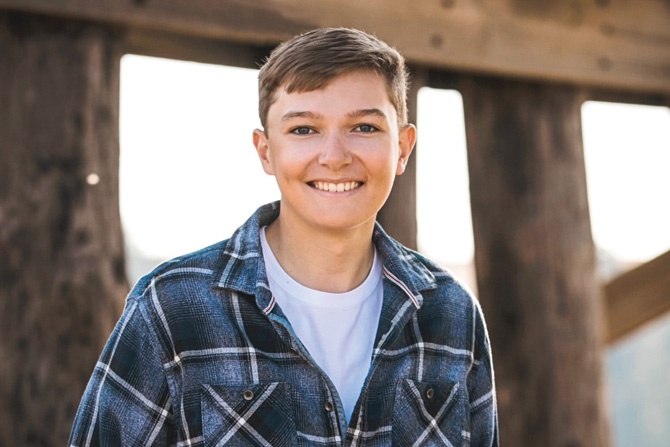

Q: Please tell us about your family.
A: I have been divorced for 1.5 years now. Lisa is an awesome mom and a good person, and we have a son and a daughter together. We have a good relationship; we communicate well and there’s no animosity. Her influence reflects itself in the children, and both of them are going to do well.
My son, Truman, is a freshman at Rocky Mountain College in Billings, Montana. He has an academic scholarship, and we hear nothing but compliments about him. He wanted to be pre-med for six years, but that changed suddenly, and now he is talking about business finance. He’s still on the fence, but he’ll do great either way.
My daughter, Morgan, is a senior at Fergus High School in Lewistown, Montana. She’s a former Miss Montana Teen USA for the 2019-2020 term. She had to do online appearances instead of going places in person, but she handled herself great. Morgan has been dancing since she was 5, and even though she wasn’t able to dance during her time as Miss Montana Teen USA, she is back now. Dance has brought her a lot of opportunities in life; opportunities to travel and dance.
Q: What is your favorite way to spend your free time? Do you have any unusual hobbies?
A: I wouldn’t say I have any unusual hobbies. We do lots of outdoor recreation and don’t spend much time at home on the weekends. We go boating, we enjoy riding a side-by-side four-wheeler, and we snowmobile in the winter.
Q: Do you have any last words?
A: I started with nothing and built something, but I will never forget where I came from. Roots go deep.
Things can change fast in the car business because it is always month to month, and you never know what the next month will be like. You can go from a great month to a bad month, but you are born again on the first day of every month.



